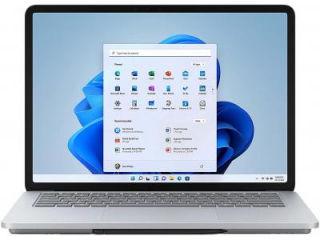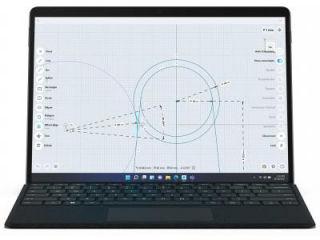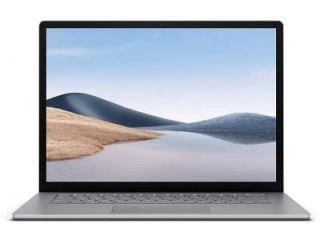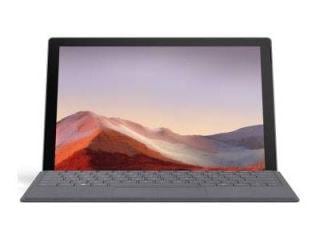Machine-learning T-Cell screening launched to detect prior Covid infections
The test uses machine-learning technology from Microsoft to detect prior Covid-19 infections, aiming to fill an important gap left by standard antibody screening.

Adaptive Biotechnologies Corp. launched a test that uses machine-learning technology from Microsoft Corp. to detect prior Covid-19 infections, aiming to fill an important gap left by standard antibody screening.
The screening, called T-Detect Covid, searches for T-cell responses against the disease, rather than the immune proteins detected by conventional tests. Seattle-based Adaptive says its product may help people who believe they've been infected but haven't tested positive with currently available analyses. That includes long-haulers -- patients who suffer lingering Covid symptoms, often for months.
“Some of these people were never diagnosed,” Lance Baldo, Adaptive's chief medical officer, said in an interview last month. “Sometimes their physicians are wondering, and -- frankly, this is where it gets ugly -- sometimes their insurers are wondering.”
Also read: Australia won't advertise COVID-19 vaccine on Facebook but vows publicity
Antibody tests from Abbott Laboratories, Roche Holding AG and other manufacturers are inexpensive and plentiful, but face questions about accuracy in long-past infections. Meanwhile, UK research suggests that a characteristic T-cell response remains in the body six months after a Covid-19 infection, potentially longer than antibodies.
T-cell responses arise quickly and “have this long tail,” Baldo said. “It's those biologic properties of T-cells that make them a really excellent target for trying to track disease, and for a diagnostic.”
Adaptive fell 5.9% as of 9:36 a.m. Tuesday in New York.
Microsoft Partnership
T-Detect Covid extracts and sequences DNA from T-cells present in a person's blood sample. It uses machine-learning software gained through a partnership with Microsoft Corp. to determine whether the collection of T-cells in the body is consistent with a past Covid infection.
The test costs $150, not including blood draws and a physician consultation, and hasn't been cleared by the US Food and Drug Administration. Available online with a prescription, it's a new technology for Adaptive, whose stock has climbed more than 66% in the last year amid a wider surge of interest in diagnostics amid the pandemic.
The company has signed partnerships with concierge medical groups that want to offer the test to their patients. Public health officials and employers are also interested in using it to look at coronavirus exposure among their populations, Baldo said.
“Anyone who has had either flu-like symptoms or thinks they might have had Covid” could be a customer, said Mark Massaro, managing director and senior equity research analyst at BTIG. “We're talking millions of people.”
Because T-cell responses correlate with disease severity, T-Detect Covid may eventually be used to predict a person's vulnerability to the coronavirus, Baldo said.
“That's probably the Holy Grail,” Baldo said.
Little Research
T-cell responses can vary among people, making it challenging to define their response to a specific pathogen, said Alessandro Sette, a professor at the La Jolla Institute for Immunology. Research on the Adaptive test is scant, and none of it peer-reviewed, said Sette, and more independent evaluation is needed.
Research by Sette and his colleague Daniela Weiskopf evaluating the immune system's response to SARS-CoV-2 suggests there may be some overlap, or cross-reactivity, with responses to other coronaviruses that cause the common cold.
“It is difficult to resolve exactly which response is coming from where,” Sette said.
T-Detect Covid didn't show any evidence of cross-reactivity in a study submitted to the FDA for emergency-use authorization, Baldo said in a statement.
College-Level Approach
T-Detect Covid is the first product to come out of the biotech's partnership with its neighbor in Washington state, the software giant Microsoft. The companies foresee using the T-Detect platform for other conditions, including Lyme and Crohn's disease.
The companies connected years ago when colleagues gave Peter Lee, now vice president for research & incubations at Microsoft, a copy of a paper from Adaptive, a spinoff from Seattle's Fred Hutchinson Cancer Research Center. The study showed how a simple analysis of a small snippet of T-cell DNA could predict the immune cell's target.
The company used “college-level machine learning and got these amazing results,” Lee recalled.
Read more: China defends use of Twitter, Facebook in Covid-19 campaign
Lee was intrigued about what kinds of results the company could obtain using more advanced techniques, and in 2017, Microsoft invested $45 million in Adaptive. Even though Adaptive has already expanded its work to several diseases, Lee said he was initially wary of taking on Covid so soon.
“On our research timeline, we were still more than a year away from being able to look at re-targeting the machine learning,” he said. Prodded on by Adaptive CEO Chad Robins, “we tried it and damn, it worked, in just a small number of weeks.”
Catch all the Latest Tech News, Mobile News, Laptop News, Gaming news, Wearables News , How To News, also keep up with us on Whatsapp channel,Twitter, Facebook, Google News, and Instagram. For our latest videos, subscribe to our YouTube channel.































